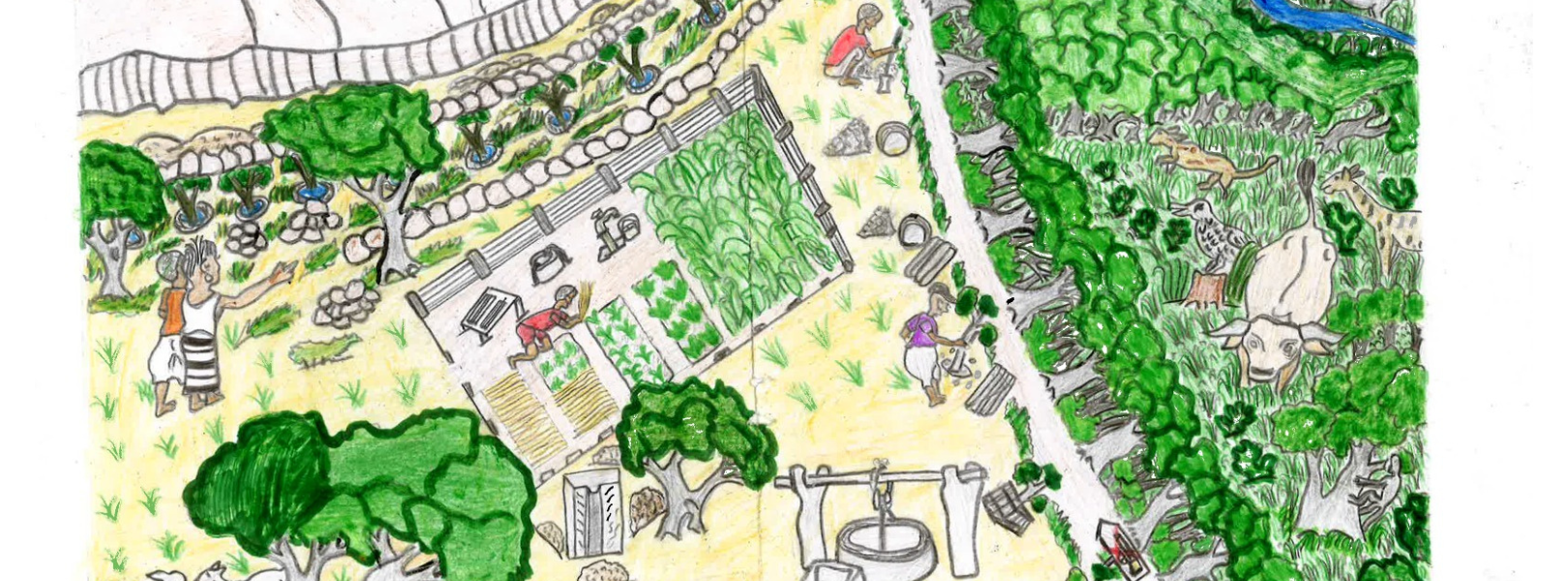Young Voices from Mali and Honduras Celebrate Nature and Soil Conservation with Art
"The tree told me to look up. The tree told me to root myself in the soil. The tree told me there are many paths. The tree told me to know how to wait. The tree told me that joy is shared."
This month, youth from Mali and Honduras wrote, drew and spoke about their connection to nature in honor of World Nature Conservation Day and International Day for the Conservation of Soil.
As participants in our Youth Storyteller Program, they document the transition to agroecology in their communities, filming, interviewing and photographing their families working in the field. Over time, they acquire essential farming skills, protect their land, and inspire rural youth to stay in their communities by demonstrating that there are meaningful job opportunities available locally.
Starting this summer, each month, we’ll showcase the creative works of rural youth on Global Days of their choice, where they share their genuine perspectives on sustainable farming, climate change, and their hopes for the future.
Global Days are designated days that call for awareness and action around specific themes or issues.
Here’s what youth from Honduras and Mali created in July:
July 7 – International Soil Conservation Day
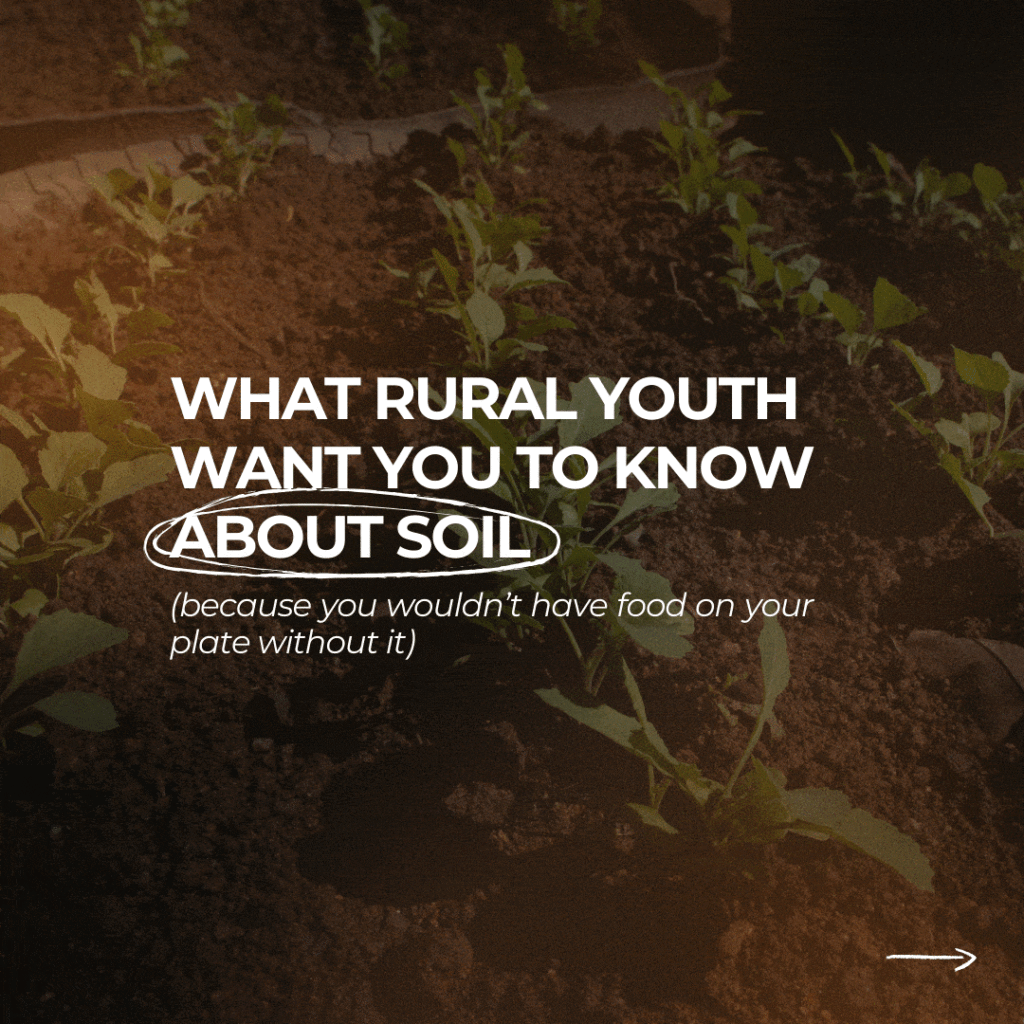



See the full post on Instagram
According to the FAO, 90% of Earth’s soil is at risk of degradation by 2050. For International Soil Conservation Day, Liliana, Arixelda, and Melissa, three young women from smallholder farming communities in Honduras, traveled with our local partner Vecinos Honduras to meet with farmers experimenting with agroecology. Their goal? To nurture the soil, from “where life is generated.” They documented their findings in this short report (in Spanish).
July 22- Global Day of Action Against Open-Pit Mining (Día Mundial Contra la Minería a Cielo Abierto)
On July 22nd, the world largely turned a blind eye to the devastating impacts of open-pit mining, with very few people calling for more sustainable mining practices.
But not these young storytellers. Eight Honduran youth, working with our partner ACESH (Asociación de Comités Ecológicos del Sur de Honduras), bravely shone a light on the industry’s dark side. Their short informative video exposes the irreparable harm open-cast mining wreaks on ecosystems, water sources, and communities. As they remind us, “You can’t buy health. Cyanide and mercury will make you realize that.”
Video produced by: Gisselda, Heydi, Enita, Edras, Elvin, Nivia, Unicer, and Ubence
July 28 – World Nature Conservation Day
A youth’s poetic perspective on nature and challenges in the Sahel
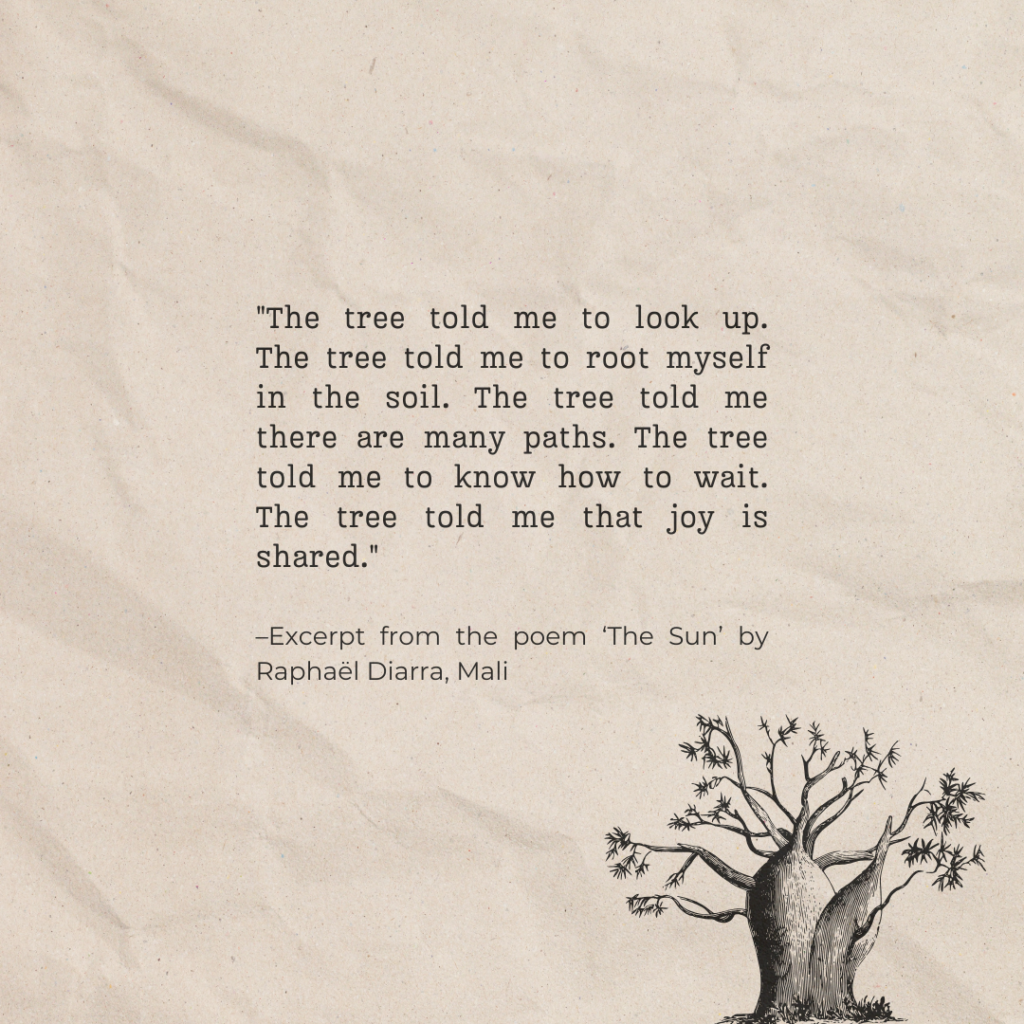
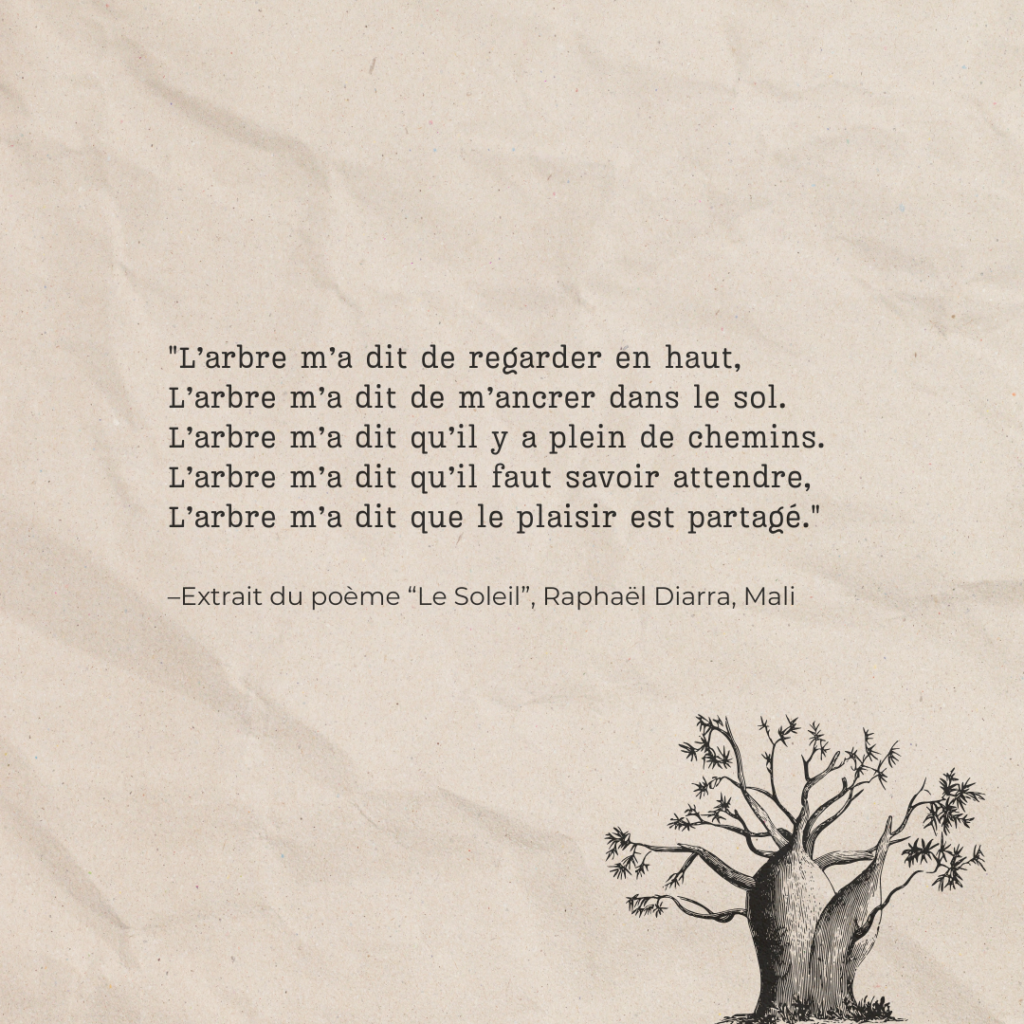
Raphaël Diarra, a youth from a smallholder farmer community in the Sahel region in Mali, dreams of creating a company and becoming a writer. In honor of World Nature Conservation Day, he’s written a poem about what nature can teach us if we learn to listen.
Read the poem (available in French and English)
Raphaël’s words remind us of the delicate balance between humanity and nature and the role we play in safeguarding that balance. This World Nature Conservation Day, take a moment to read his poem and share it with your friends and peers to amplify the voices of rural youth.
Moïse’s vision for healthy farming & food systems
What do healthy farming and food systems look like?
Moïse Dakouo, a youth participating in our Youth Storyteller Program with our partner Sahel Eco in Mali, drew his vision for ideal farming and food systems: models that respect people and nature.
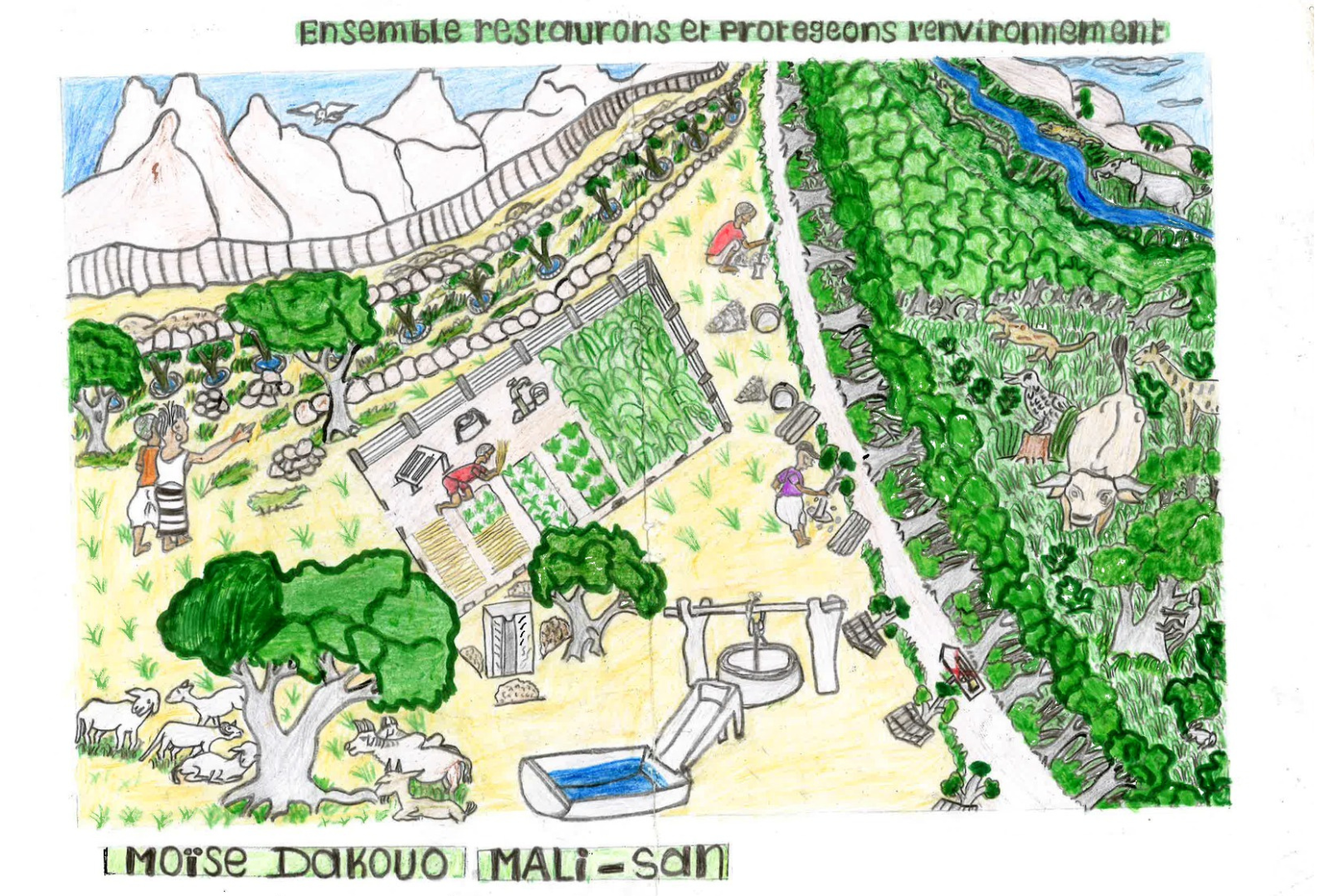
Moïse’s artwork portrays the harmonious integration of sustainable agriculture and environmental conservation. The more you look at it, the better you can understand Moïse’s perspective which perfectly depicts the potential of agroecology.
On the left, you can see Moïse’s community’s collective efforts in agroecology—cultivating diverse crops in vegetable gardens, trees that provide shade to livestock, and women teaching youth. On the right, a thriving ecosystem with abundant greenery and flowing water reminds us of the importance of conserving and restoring natural habitats.
This drawing reflects the work of Sahel Eco through the eyes of rural youth. Sahel Eco works with the people of the Sahel to enhance their standard of living through improved environmental management. Focused on the Mopti and Segou regions, Sahel Eco has significantly influenced government and peer agency policies and practices to promote farmer-managed natural regeneration (FMNR) as part of a broader regional “re-greening movement.”
Moïse’s vision is one we can achieve in many places. If it works in the Sahel, one of the most challenging places on Earth to live, it shows that agroecology can transform our systems worldwide to benefit people and the planet.
Seydou’s Interview with a Young Malian Farmer
Meet Traoré Lasine, a young graduate in sustainable agriculture, determined to contribute to the restoration and preservation of nature. In this video, he explains the crucial role of agroecology in building resilience to climate change, increasing crop production, and preserving soil health in Mali. (The video is available in French only).
A video produced by Seydou
Lifting up the next generation of farmers
Young rural voices are shaping the future of environmental conservation and agroecology. They have a vision, and with your support, we can help them achieve it. Subscribe to our newsletter and follow us on social media to discover youth’s next creations in the coming months!
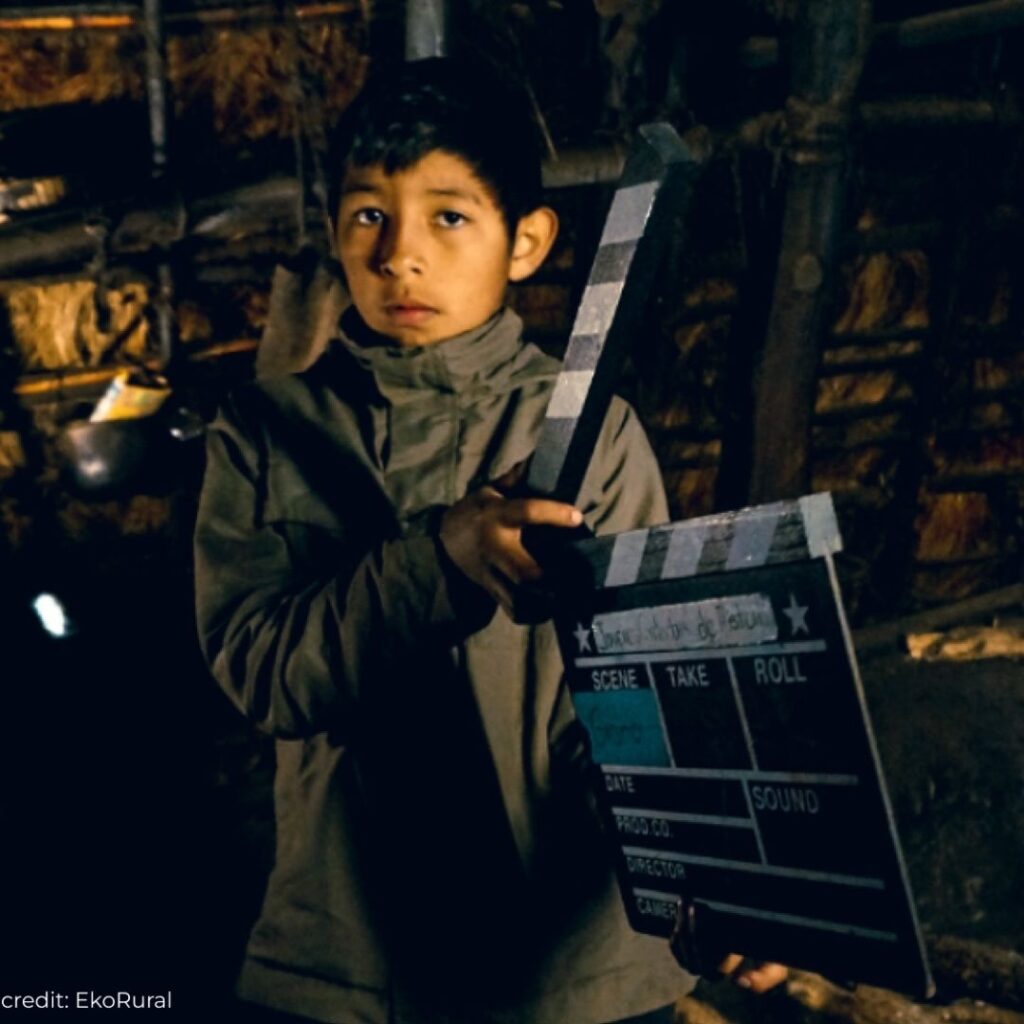
Invest in rural youth to support the next generation of farmers
Your gift will enable youth in 11 countries in the Global South to access training, equipment and opportunities to document and share their communities’ stories.

